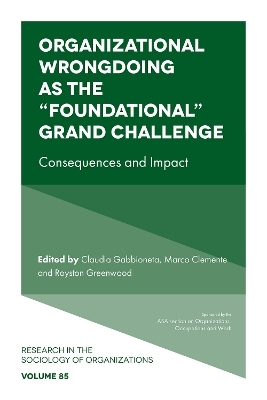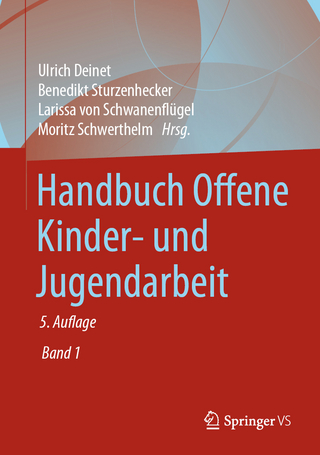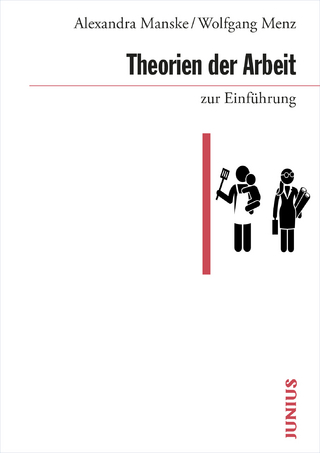
Organizational Wrongdoing as the “Foundational” Grand Challenge
Emerald Publishing Limited (Verlag)
978-1-83753-283-4 (ISBN)
Media coverage consistently features examples of organizations engaging in unethical or illegal behavior. Given its potential to impact and even damage established institutions, organizational wrongdoing deserves to be closely monitored and more carefully examined. Drawing attention to the theoretical and empirical relevance of this topic, this second instalment in a double volume of Research in the Sociology of Organizations focuses on the consequences of organizational wrongdoing, the role of whistleblowing, and methodological issues.
Detailing the ramifications of organizational wrongdoing, chapters in this second volume examine the remedial actions that firms can take to recover from wrongdoing, the so-called spill over effects of organizational wrongdoing whereby ‘innocent’ firms are affected by the misdeeds committed by others, as well as the valuable insights that historical approaches can provide in studying organizational wrongdoing.
Taken individually as well as together, the two volumes that comprise Organizational Wrongdoing as the “Foundational” Grand Challenge provide a major touchstone for scholars interested in understanding recent developments and exciting new directions in the study of organizational wrongdoing.
Claudia Gabbioneta holds a Chair in Accounting and Management at the School for Business and Society, University of York, UK. Her research interests include professions, organizational wrongdoing, and professional misconduct. Marco Clemente is Professor of Sustainability and Management, Head of the Research Center for Corporate Responsibility at the ZHAW School of Management and Law, Switzerland. His research interests include business ethics, sustainability, organizational misconduct, and corporate scandals. Royston Greenwood is Professor Emeritus at the University of Alberta, Canada, and Professorial Fellow at the University of Edinburgh, UK. His research interests include organizational and institutional change from an institutional perspective.
Foreword; Michael Lounsbury
Introduction: Organizational Wrongdoing as the “Foundational” Grand Challenge: Consequences and Impact; Claudia Gabbioneta, Marco Clemente, and Royston Greenwood
Chapter 1. The Certification Effect of New Legislation: CEO Accountability for Misconduct after Sarbanes-Oxley; Jo-Ellen Pozner, Aharon Mohliver, and Celia Moore
Chapter 2. Goofus or Gallant? An Attribution-Based Theory of Misconduct Spillover Valence; Jung-Hoon Han, Timothy G. Pollock, and Srikanth Paruchuri
Chapter 3. “Crowd Contamination”? Spillover Effects in the Context of Misconduct Allegations; Brigitte Wecker and Matthias Brauer
Chapter 4. Peers: Powerful or Negligible? A Systematic Review on Peer Factors and Internal Whistleblowing; Behnud Mir Djawadi, Sabrina Plaß, and Sabrina Schäfers
Chapter 5. I Report If They Report: The Role of Media in Whistleblowing Intentions on Fraud and Corruption; Sebastian Oelrich
Chapter 6. Networked Whistleblowing, Counter-Hegemony and the Challenge to Systemic Corruption; Iain Munro and Kate Kenny
Chapter 7. Historical Approaches to Researching Organizational Wrongdoing; Adam Nix and Stephanie Decker
| Erscheinungsdatum | 17.07.2023 |
|---|---|
| Reihe/Serie | Research in the Sociology of Organizations |
| Verlagsort | Bingley |
| Sprache | englisch |
| Maße | 152 x 229 mm |
| Gewicht | 386 g |
| Themenwelt | Sozialwissenschaften ► Soziologie ► Mikrosoziologie |
| Wirtschaft ► Betriebswirtschaft / Management ► Planung / Organisation | |
| ISBN-10 | 1-83753-283-4 / 1837532834 |
| ISBN-13 | 978-1-83753-283-4 / 9781837532834 |
| Zustand | Neuware |
| Haben Sie eine Frage zum Produkt? |
aus dem Bereich


